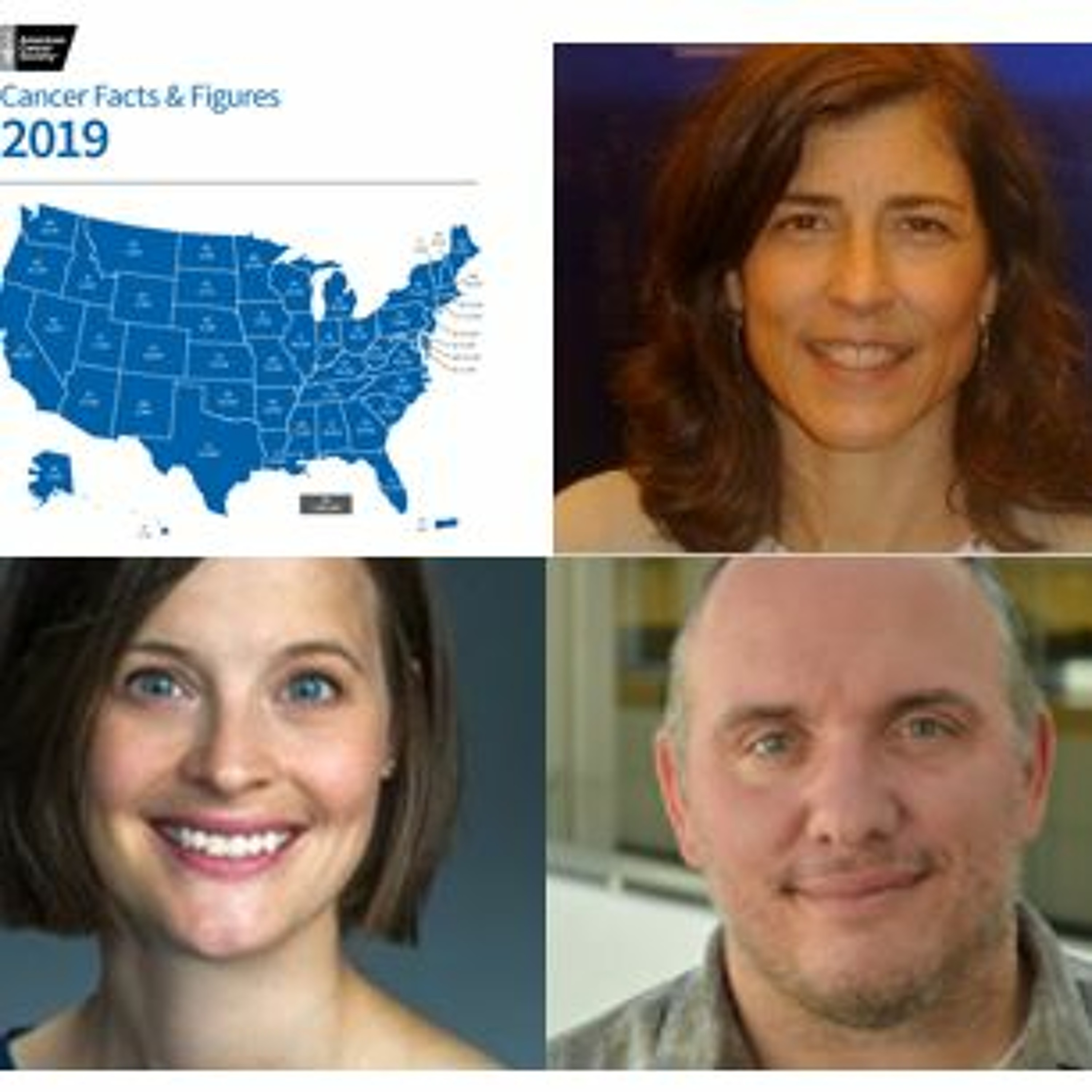American Cancer Society scientists on colorectal cancer research

The American Cancer Society not only funds cancer research, it also employs dozens of scientists who are among the leaders of their respective fields. ACS researchers Stacey Fedewa, Pete Campbell, and Becky Siegel talk about the colorectal cancer research they're conducting related to risk factors, health equity issues, and the rise in early-onset colorectal cancer. 1:15 – On some of the most important unanswered questions in their field – “We know that no two tumors look alike on a molecular level. What are the causes and consequences of that tumor heterogeneity?” 4:50 – On how much we’ll able to learn from CPS-2 and CPS-3 – “In CPS-2 we just finished targeted sequencing of about 800 samples from people diagnosed with colon cancer. We just started looking at the data now. It’s literally hot off the presses…And CPS-3 is only going to be bigger…We’re able to measure things in the blood that happen prior to diagnosis, we have extensive survey information years before their diagnosis, and then we’ll have tumor samples from their colorectal surgery.” 6:30 – On the increase in colorectal cancer incidence in young adults – “Millennials now have twice the risk of colon cancer diagnosis compared to someone born in the 1950s at the same age. And for rectal cancer…it’s four times higher. And no one right now knows why this is happening.” 17:15 – The Medicare loophole and its implications – “Medicare will cover ‘screening colonoscopies,’ but the way (Medicare) defined screening colonoscopies is if there was no polyp found. So if somebody comes in for a screening colonoscopy and a polyp is found it will be deemed ‘diagnostic,’ and then they might be charged up to 20% for a colonoscopy…People are being asked to put a credit card down when they get a colonoscopy.” 22:00 – Why does their work matter to colorectal cancer patients – “Very, very few studies have data on patients before they became patients and after they were patients. CPS-2 has been going on since 1992, so with that amount of follow-up time, we’re able to follow people into their 80s and 90s and see what factors really influence that long-term survival.”